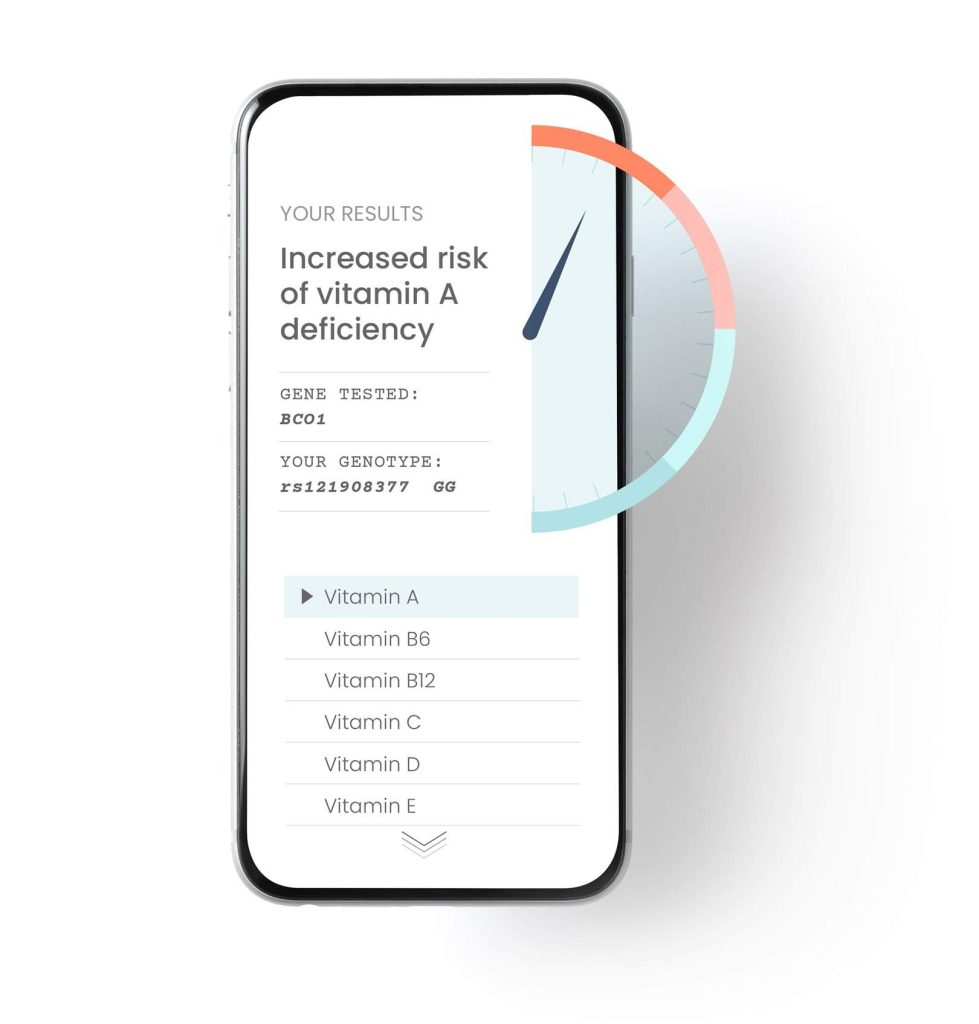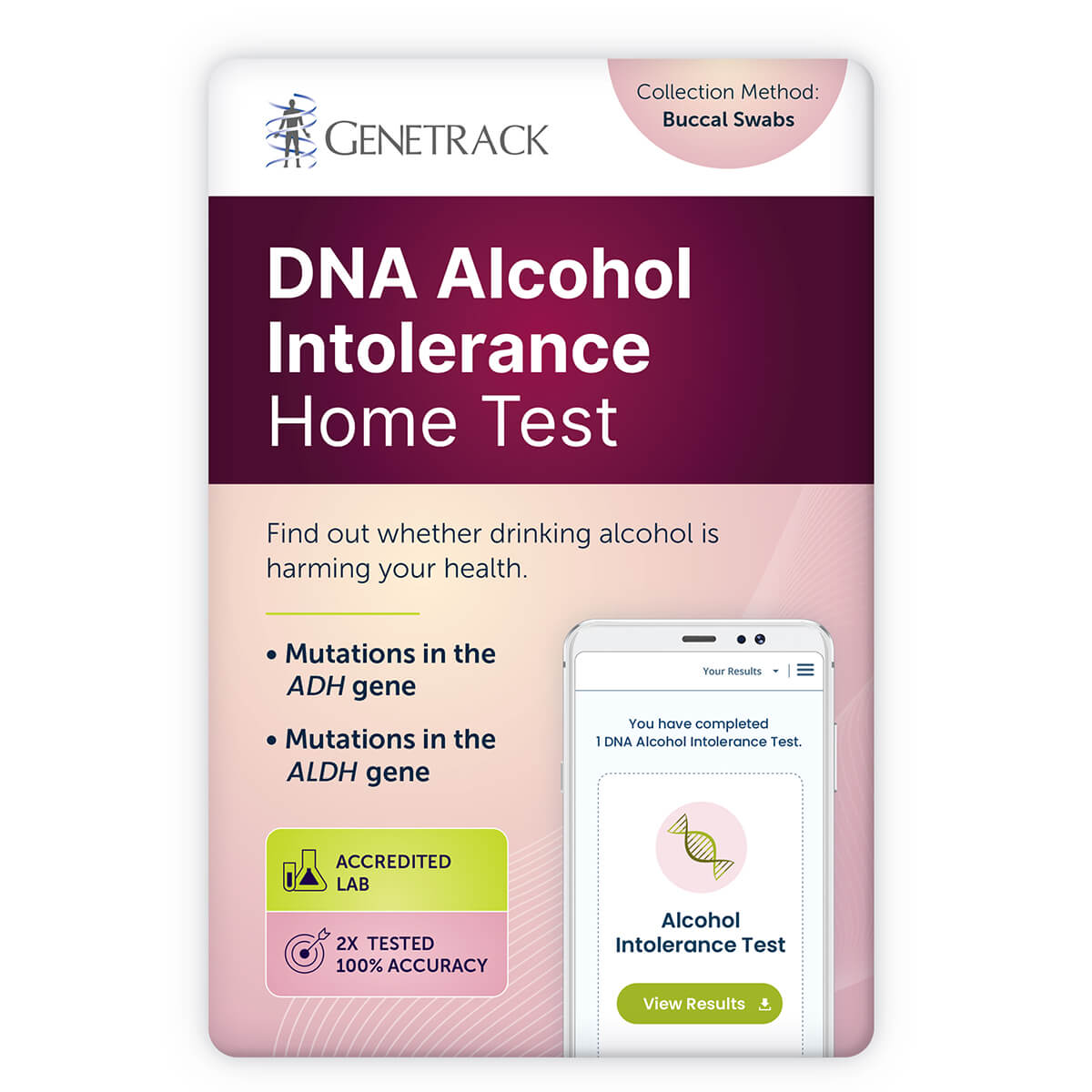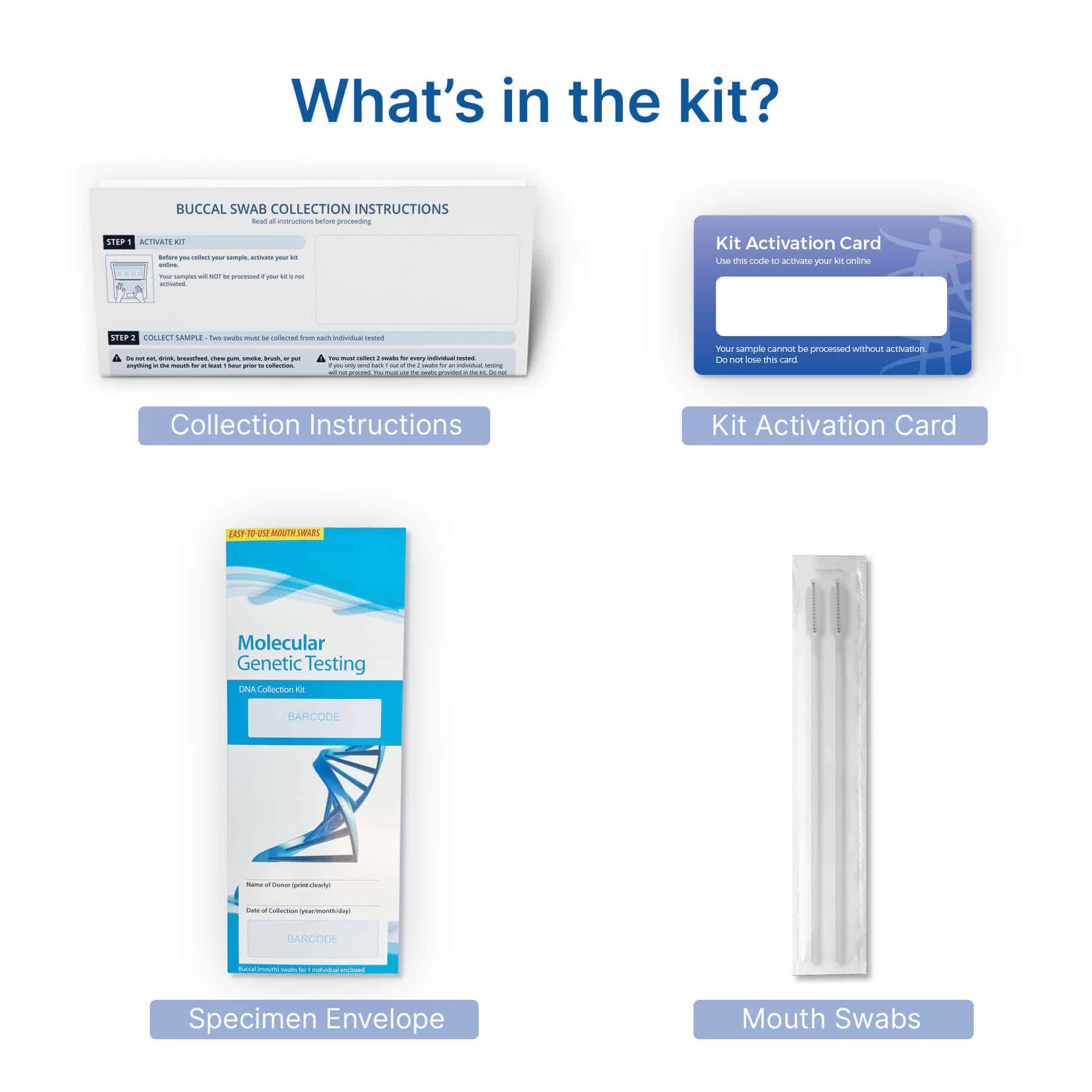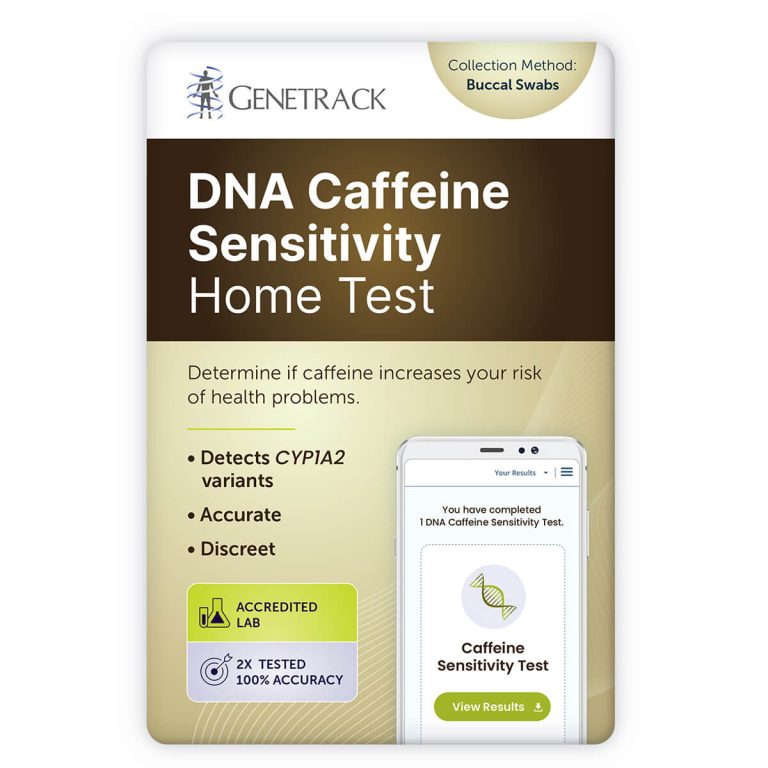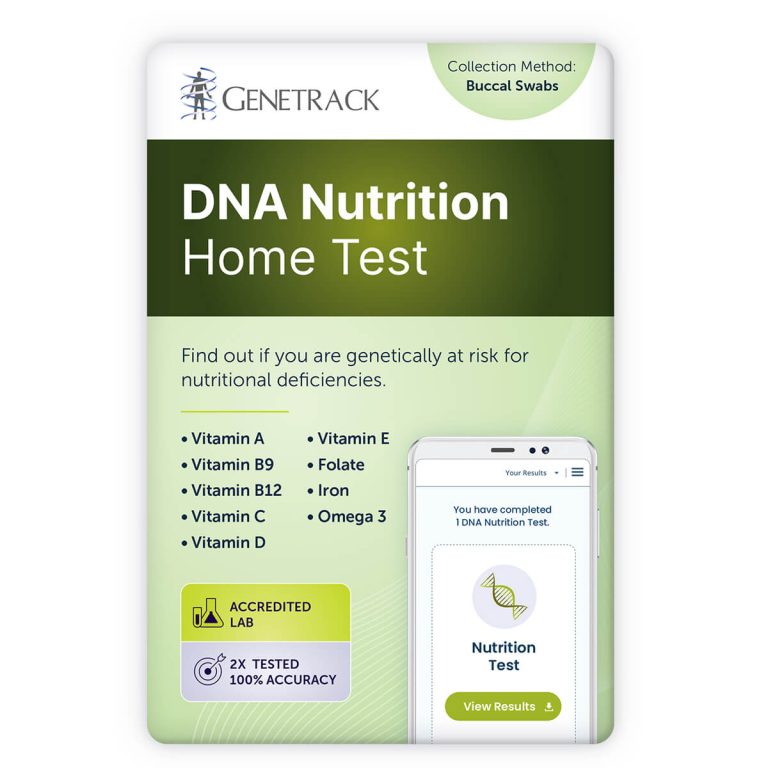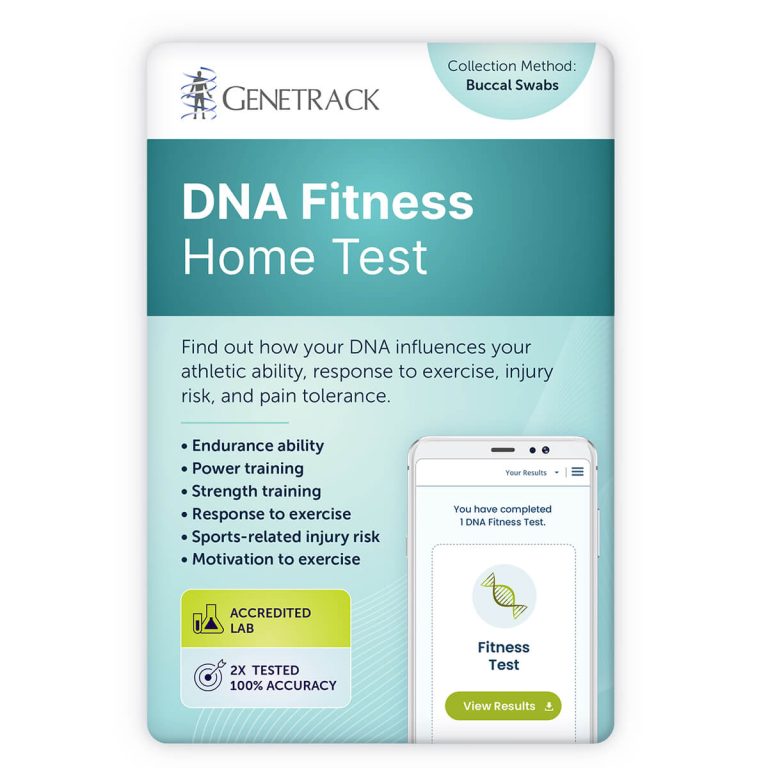DNA Alcohol Intolerance Test
Are you alcohol intolerant?
If you’ve noticed your face turning red or suffer severe hangovers after just one drink, you might have alcohol intolerance. Find out whether you have the genetic variants linked to alcohol intolerance with our easy-to-use DNA test kit.
- Includes ADH and ALDH gene mutations linked to alcohol metabolism.
- Understand your genetic risk of alcohol intolerance
- Easy at-home mouth swab collection kit
$149.00
Fast, Convenient, Painless
How is alcohol metabolized?
Alcohol, also known as ethanol, is processed in our bodies through a two-step enzymatic process. Here’s how it works:
- Alcohol Dehydrogenase (ADH): In the first step, ethanol is converted into acetaldehyde by an enzyme called alcohol dehydrogenase. Acetaldehyde is a toxic substance and the primary cause of adverse alcohol reactions.
- Aldehyde Dehydrogenase (ALDH): The second step involves the conversion of acetaldehyde into acetate by another enzyme known as aldehyde dehydrogenase. Acetate is a much less harmful substance that can be easily broken down into carbon dioxide and water.
What causes alcohol intolerance?
Individuals with genetic variations in the alcohol metabolism pathway may generate acetaldehyde too quickly or not eliminate it fast enough. This can lead to the dangerous accumulation of acetaldehyde in the body, even when moderate amounts of alcohol are consumed.
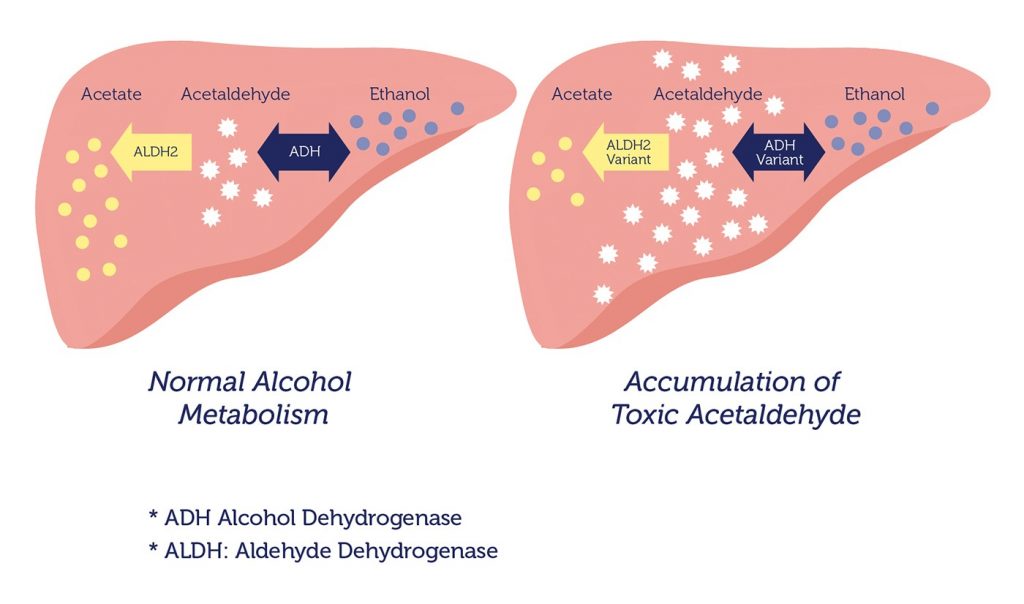
Symptoms of Alcohol Intolerance
If you have alcohol intolerance, you may some of the following symptoms after you consume alcohol:
- Facial redness (flushing)
- Rashes/hives
- Nausea
- Dizziness
- Headaches
- Increased Heart Rate (Palpitations)
- Insomnia
- Severe hangovers
To determine whether you have inherited DNA changes that affect your ability to metabolize alcohol and may increase your risk of serious health complications, a simple mouth swab test is all that is needed.

The Genetics
Genetic variations in the alcohol metabolism pathway can make your body process alcohol differently. Some individuals may produce acetaldehyde too rapidly or struggle to eliminate it effectively, leading to the risky buildup of this toxic substance, even with moderate alcohol consumption.
Variants Tested
- ADH1B and ADH1C – These genes help turn alcohol (ethanol) into acetaldehyde. Genetic changes in these genes can make this process happen faster, causing acetaldehyde to accumulate in the body.
- ALDH2 – This gene helps transform acetaldehyde into a less harmful substance, acetate. But if you carry a common genetic variant in ALDH2, this step slows down, allowing acetaldehyde to stay in your system longer.
Impact of Genetic Variations
- Two ALDH2 alleles (homozygotes): With two slow ALDH2 alleles, you won’t have any detectable enzyme activity, leading to severe side effects when you consume alcohol.
- One ALDH2 allele (heterozygotes): ALDH2 heterozygotes experience a 30-50% decrease in enzyme activity compared to those with two fast alleles, resulting in moderate side effects like a mild alcohol flush. However, these individuals often underestimate the risks of alcohol consumption.
Health Risks of Continuous Alcohol Consumption
Studies have shown that some ALDH2 heterozygotes in Asian populations consume large amounts of alcohol, often using antihistamines to reduce flush symptoms. Unfortunately, this continuous alcohol consumption significantly increases their health risks, including a roughly 10-fold increased risk of esophageal cancer for moderate drinkers and up to a 90-fold increase for heavy drinkers.
How Home DNA Testing Works

Order Test Kit
From relationship tests to health tests, we offer a wide range of DNA tests to fit your needs.

Collect & Ship
Simply collect DNA with our easy-to-use swabs in the comfort of your home.

Receive Results
Access your confidential results online the moment testing is completed. Our team of experts is available for any questions.
Secure & Confidential Online Results
